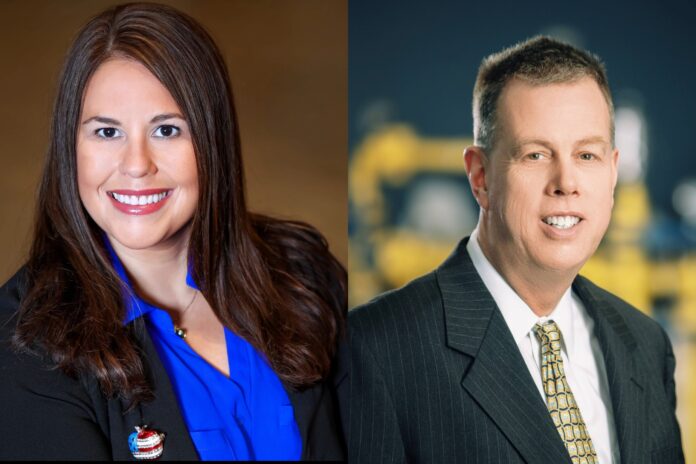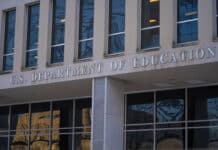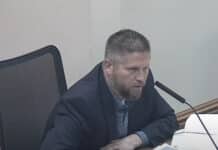
Two pro-parent Elk River (ISD 728) school board members said the school board “code of ethics” gives the superintendent too much power and they will not sign it.
Board members are asked to sign the code of ethics each year at the board’s organizational meeting, which took place Monday night. It was distributed to board members who were instructed to sign and return the document to the superintendent’s administrative assistant.
Both Mindy Freiberg and John Anderson, who signed the document last year, said they will not sign it again. Both members said they “have problems” with the language.
The code of ethics, known as “Policy 209,” binds school board members to “support the decision of the school board,” whether they agree with it or not, “work through the superintendent,” “give the superintendent authority commensurate with his or her responsibilities,” and “participate in school board action after considering the recommendation of the superintendent.”
Furthermore, Policy 209 prohibits members from making “disparaging remarks, in or out of school board meetings, about other members of the school board or their opinions.”
In December, the school board used the code of ethics to censure Freiberg and Anderson, prompting strong criticism from Rep. Walter Hudson, a Republican who represents parts of the school district.
The code is based on a model policy drafted by the Minnesota School Boards Association.
Anderson was accused of making “inappropriate” comments in the workplace and disparaging the superintendent to community members. The comments included telling the superintendent he would be fired if he worked in corporate America and using the phrase “drag queen performance.”
The allegations against Anderson and Freiberg also included being tardy or unprepared for meetings, speaking to legislators or constituents without authority, inquiring about curriculum, and failing to communicate with Superintendent Dan Bittman, the board’s employee, in a timely manner.
In July, Bittman complained that the board wasn’t “operating cohesively” while claiming some board members were working “against me as superintendent.”
“I have never in my 30 years spent every single day and time every week justifying and defending my time and my cabinet’s time, our staff time and our work time — not just to get information but justifying why we do what we do even when we’re doing exactly what the full board directed us to do. I never had a board that relies more on their constituents than the people doing the work over and over on a daily basis,” he said at the time.
Board Chair Holly Thompson ordered an investigation into alleged violations of protocol, procedure, and policy in August.
The school board’s attorney Michael Waldspurger repeatedly referenced the district’s code of ethics policy before offering the board a resolution to censure the pro-parent members last month. The censure against Anderson and Freiberg was approved.
“It puts restraints on board members,” Anderson said of Policy 209. “It tries to control behavior and conversation.”
For instance, the policy explicitly states that board members are required to “support the decision of the school board, even if my position concerning the issue was different.”
The code of ethics is used to “hamstring the board,” said Anderson. “We represent the taxpayers. That should drive student outcomes. Why should I support a decision if it is wrong or just downright evil? Imagine telling a state representative they have to support the decisions of the majority.”
“I will not sign is again because they are taking it to extreme levels,” Freiberg told Alpha News ahead of Monday’s meeting. “So much of it is a gray area.”
Lawsuit over school board policy
Almost nine years ago, a similar policy was used by the Duluth school board against one of its own members.
In 2015, the Duluth school board attempted to remove board member Art Johnston, citing code of ethics violations. However, Johnston filed a lawsuit in federal court insisting the code of ethics infringed upon his right to free speech.
According to Johnston’s lawsuit, the Duluth school board sought to “remove Johnston for speaking out on matters of public concern, as he was elected to do.” Furthermore, the lawsuit said the school board was “engaging in First Amendment retaliation of the most fundamental kind. Their effort is premised largely on Johnston’s purported violation of a School District ‘Code of Ethics’ that is unconstitutionally vague, overbroad, content-based, and unconstitutional as applied, and must be declared as such.”
After Johnston filed his lawsuit, the Duluth school board rescinded their removal resolution and censured him instead. Afterward, Johnston voluntarily dismissed the case.
“The Johnston case is an interesting one,” said James Dickey, an attorney with the Upper Midwest Law Center (UMLC). “Obviously it didn’t get beyond the initial complaint and hearing. The school district caved after Johnston made it pretty clear they were going to win the case.”
Referring to the Elk River school board, Dickey said, “I think it’s unlikely that they’ll do anymore because at this point, I think they know quite well the U.S. Supreme Court and the Ninth Circuit’s decision have them on notice that if they do more than what they’ve already done that they are walking into a likely lawsuit,” said Dickey.
According to Dickey, the U.S. Supreme court has affirmed that a censure alone is not grounds for a First Amendment lawsuit.
“It’s when you censure someone and punish them or if you go beyond censure because of their speech, that is retaliation and that I believe violates the First Amendment. If the school board were to do anything beyond the censure against John Anderson and Mindy Freiberg and try to formally remove them or strip them of powers or authority that they have as elected representatives of their community, then there could be a claim for a violation of their constitutional rights,” Dickey said.
Sheila Qualls
Sheila Qualls is an award-winning journalist and former civilian editor of an Army newspaper. Prior to joining Alpha News, she was a Christian Marriage and Family columnist at Patheos.com and a personal coach. Her work has been published in The Upper Room, the MOPS blog, Grown and Flown, and The Christian Post. She speaks nationally on issues involving faith and family.
















